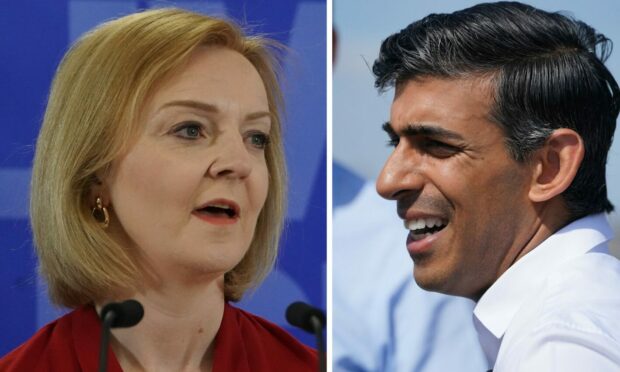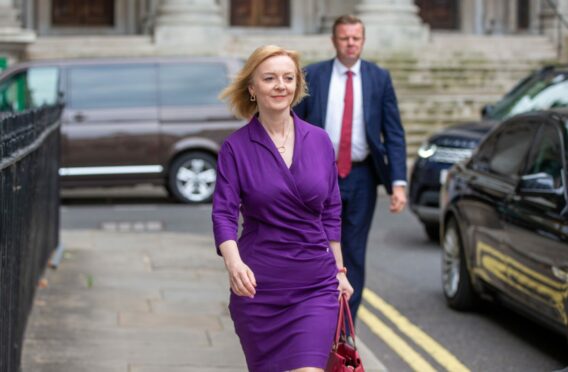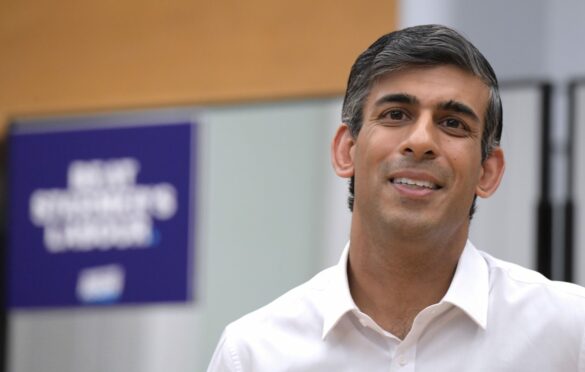Tory leadership hopefuls have been whittled down to the final two – but can candidates who served in Boris Johnson’s cabinet make the case for change without trashing their own record?
That is the dilemma facing former chancellor Rishi Sunak and Liz Truss, the current foreign secretary.
During heated televised debates, both criticised elements of the current UK Government despite holding senior roles for the majority of its tenure.
From calling for more investment to scrapping some of the government’s newest policies immediately, the final two have looked to distance themselves from a Johnson era they were both a central part of.
Collective responsibility means it would have been almost impossible for either Mr Sunak or Ms Truss to openly criticise the prime minister and keep their jobs.
But now that Mr Johnson is on his way out the door, both have been more than happy to set out where they disagree with his policies and have confirmed he will have no role within either of their cabinets.
Disagreement on taxes
One of the most explosive divisions so far has been on taxes.
Ms Truss says she wants to reverse the recent rise in national insurance, scrap the planned rise in corporation tax and bring defence spending targets forward.
Mr Sunak is also pledging to reduce taxes and cut income tax.
However, in the televised debates, the foreign secretary attacked the former chancellor’s record, and by extension her own cabinet, for raising taxes to a record high.
She warned the economy would head to a recession under Mr Sunak’s leadership.
Truss said: “It is cutting back on growth.
“It is preventing companies from investing and it’s taking money out of people’s pockets.
“That is no way to get the economy going during a recession.”
In response, he branded her a socialist who would be reckless with public finances.
He said: “There’s a cost to these things and the cost of higher inflation, higher mortgage rates, eroded savings.
“And you know what? This something-for-nothing economics isn’t Conservative – it’s socialism.”
Rebuilding trust in government
Boris Johnson’s performance in Number 10 is said to have lowered people’s trust in government.
Rebuilding public confidence will be one of the biggest mountains to climb for the new prime minister, and Mr Sunak said this will be one of his top priorities.
He added that “one of the first” things he would do is appoint an independent ethics adviser.
This post has been vacant since Lord Geidt resigned in June after accusing Mr Johnson of proposing a “deliberate” breach of the ministerial code.
Mr Sunak himself has acknowledged the Downing Street parties, including his own police fine, have damaged public trust in No 10.
He was fined by the Met Police for a lockdown-breaking party in No 10.
He also came under fire for the tax affairs of his wife Akshata Murty
Climate and the cost of living crisis
Another big topic for the two candidates to grapple with is the environment.
In March this year Mr Johnson unveiled his party’s new environmental policies, including a new generation of nuclear power stations and plans to speed up the spread of offshore wind farms.
Both candidates backed the proposals after they were agreed by cabinet but it seems some will be scrapped immediately by whoever wins.
Mr Sunak will continue plans to introduce more nuclear power stations but wants to reverse the decision to scrap the ban on building new onshore windfarms.
And Ms Truss, who has previously served as environment secretary, wants to review the ban on fracking and launch a UK-wide survey of wildlife.
Brexit grapple
A key issue in this leadership race will be Brexit – and the pair have repeatedly locked horns over the issue.
Liz Truss voted to remain in 2016 referendum but has done a complete U-turn on her position and now says campaigning to remain was a “mistake”.
Rishi Sunak was a dedicated supporter of leaving the EU.
But the chancellor criticised the way the Northern Ireland Protocol agreed by Boris Johnson is working.
He says it poses enormous challenges to the “stability of the situation in the nation”.
As foreign secretary, Ms Truss played a key role in introducing the Northern Ireland Protocol Bill.
Race is on for No 10
Despite these criticisms and key differences, Ms Truss has said she will not make “disparaging comments” about her leadership rival.
Similarly both pulled out of a scheduled televised debate saying they were “concerned about the damage the debates are doing to the image of the Conservative Party, exposing disagreements and splits”.
Regardless, it is now up to the wider party members to decide who ultimately will win the race to No 10.
The winner of the leadership contest is expected to be announced on September 5.





